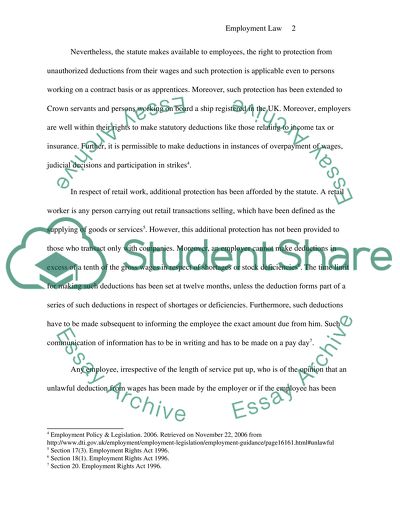Cite this document
(“Employment Law Assignment Essay Example | Topics and Well Written Essays - 3000 words”, n.d.)
Retrieved from https://studentshare.org/law/1522194-employment-law-assignment
Retrieved from https://studentshare.org/law/1522194-employment-law-assignment
(Employment Law Assignment Essay Example | Topics and Well Written Essays - 3000 Words)
https://studentshare.org/law/1522194-employment-law-assignment.
https://studentshare.org/law/1522194-employment-law-assignment.
“Employment Law Assignment Essay Example | Topics and Well Written Essays - 3000 Words”, n.d. https://studentshare.org/law/1522194-employment-law-assignment.


